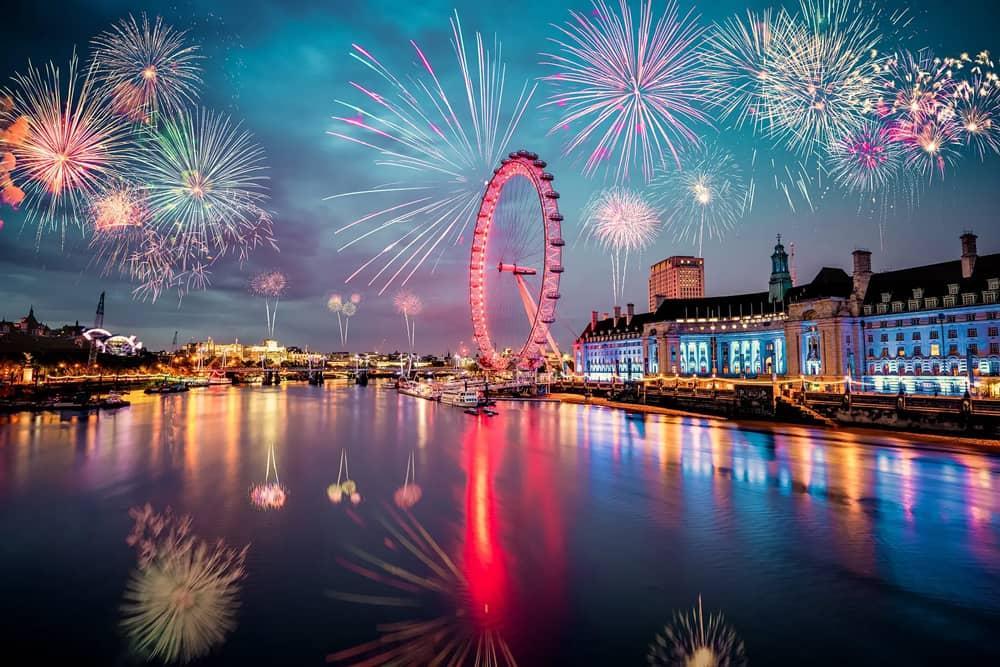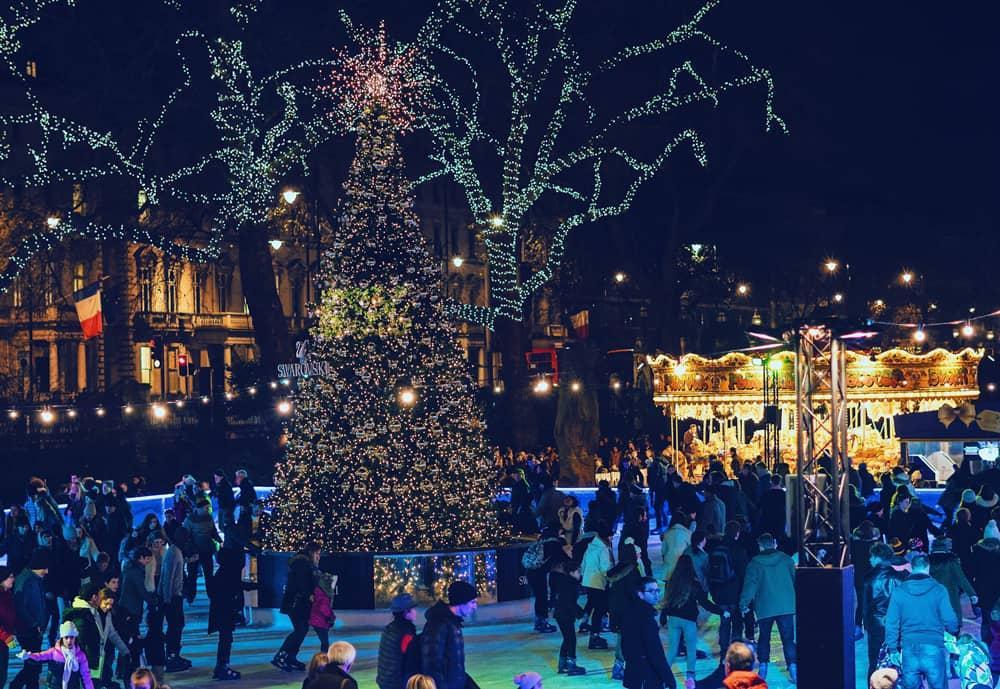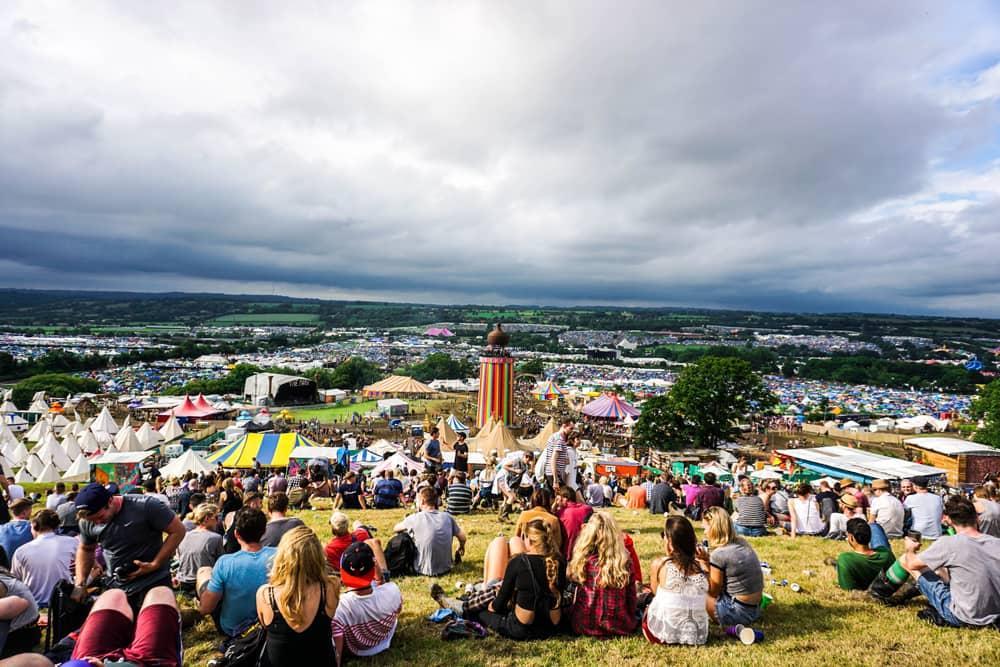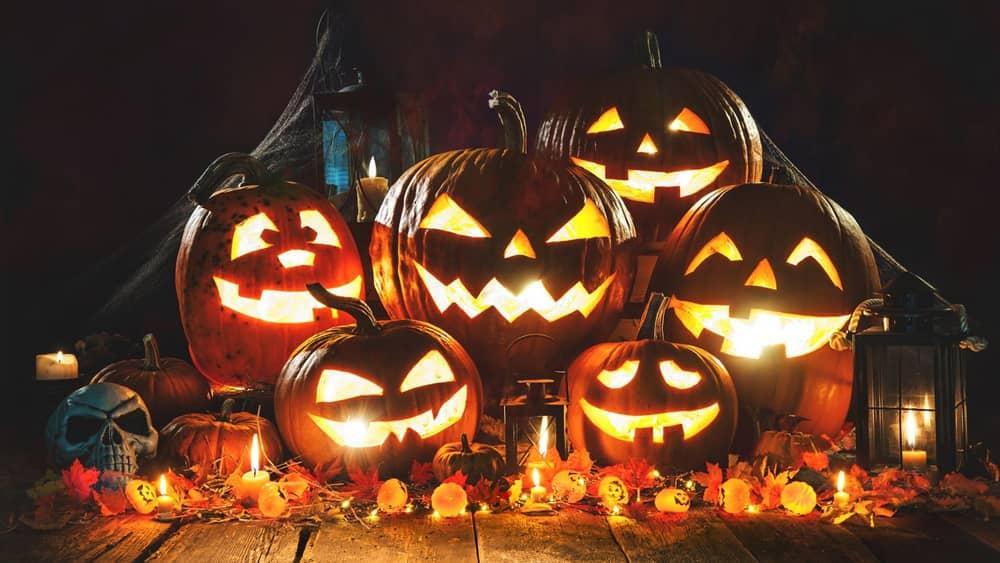Holidays and National Celebrations in England
England, with a rich history and culture, hosts a wide range of festivals and celebrations. This country, blending ancient traditions and diverse cultural influences, holds events that attract many tourists from around the world every year.
The influence of British aristocratic culture is still visible in the country's architecture, fashion, and art. However, like other countries in the world, England has also been influenced by different cultures and has included modern and international events in its calendar. This combination of tradition and modernity has given British festivals and celebrations a unique identity.

Holidays and Festivals in England
The UK holiday and festival calendar includes public holidays, traditional events, and modern celebrations. These events take place throughout the year, providing opportunities for people to come together and enjoy the rich culture of the country.
Related Article: Holidays and National Celebrations in the United States
Table of official holiday dates in England for 2024-2025
Holiday | 2024 | 2025 |
| New Year's Day | Monday, 1 January | Wednesday, 1 January |
| Good Friday | Friday, 29 March | Friday, 18 April |
| Easter Monday | Monday, 1 April | Monday, 21 April |
| Early May Bank Holiday | Monday, 6 May | Monday, 5 May |
| Spring Bank Holiday | Monday, 27 May | Monday, 26 May |
| Summer Bank Holiday | Monday, 26 August | Monday, 25 August |
| Christmas Day | Wednesday, 25 December | Thursday, 25 December |
| Boxing Day | Thursday, 26 December | Friday, 26 December |
Here are some of the most important festivals and celebrations in Britain:

Holidays in January in England
January is New Year's Day and a blessed festival for a new beginning. Everybody spends this public holiday with their friends, family, and acquaintances and celebrate until midnight.
One of the biggest New Year's celebrations in Britain is the Edinburgh Hogmanay. This festival, which is held in the city of Edinburgh, is accompanied by dancing, music, and fireworks. Interestingly, until four hundred years ago, New Year and Christmas celebrations were banned in Scotland, and Hogmanay was considered a kind of celebration to compensate for this ban.
Britain has many folk festivals, each of which requires a separate text. In the Andrew's Dole ceremony, each participant is given a piece of bread to remember the poor. Mummers' plays and the sword dance of a man dying and coming back to life dramatically showing the death of the past and rebirth, and the thread and needle ceremony are other unique New Year events in Britain. The calendar of holidays and festivals in Britain continues from here without considering local customs.
February Holidays in England
- Chinese New Year: Every year in late January or early February, with the beginning of the Chinese New Year, Britain, especially London, turns into a colorful and vibrant city. This grand celebration, which is considered the largest Chinese New Year celebration outside of Asia, is held with traditional Chinese customs and a joyful atmosphere. It is worth noting that this big and glamorous party is not a holiday and is part of the memorable festivals of Britain.
- February 14th is Valentine's Day or Lovers' Day, which is celebrated in most countries of the world. On this day, people make their partners happy with surprises or a romantic date and give each other beautiful and decorated cards, chocolates, flowers, or expensive gifts. This special day is remembered like a birthday or anniversary and that's why it's important how it's celebrated. Single people sometimes face surprising proposals or gifts from unknown senders. Some prefer to spend Valentine's Day with close friends or give beautiful gifts to their mothers.
- From mid-February to mid-March, Shrove Tuesday, also known as Pancake Day, is the day before the start of Lent and the last day of the Shrovetide celebration. The next day is Ash Wednesday, and the Christian Lent begins in many British families. One of the things done on Pancake Day as a celebration is eating pancakes. Pancake Day can happen in early to mid-March and is not a public holiday.
March Holidays in England
- March 17 is Patrick's Day, which is celebrated by Irish communities around the world, and many British cities host its events. Everyone wears green clothes, drinks Irish Guinness, and celebrates the introduction of Christianity into their culture. St. Patrick's Day is not a public holiday in Britain.
- Mother's Day is celebrated exactly three weeks before Easter and has an approximate date in March (for example, March 30/ The exact date varies every year because Easter is a movable feast). This celebration in Britain has its roots in Christian fasting and since the time when children in the Middle Ages were forced to leave their families to work as domestic servants, they were allowed to return to their homes, to their mothers and pray in the church as an annual ceremony. It is not a public holiday.
- And a very important tradition that follows two days of holiday: Easter. Good Friday and Easter Monday are important Christian holidays that refer to the resurrection of Jesus Christ after being crucified and remind us of the passing of winter and the beginning of the colorful and blossoming season of spring. Egg painting by children, cute toy rabbits, chocolate eggs are found all over Britain, and not only for children but for everyone who wants to be happy on this day, are all a short description of Easter. This holiday is celebrated with a family meal that includes a roasted lamb.
April Holidays in England
- Easter Monday and Good Friday, which are sanctified three days before Easter and are accompanied by fasting and praying in church, may both fall in April.
May Holidays in England
- There is a public holiday that used to mark the passage from spring to summer and was recognized by the Celts two thousand years ago. The first Monday of May was made a holiday by the British government in the 1970s and, in addition to the spring equinox and summer solstice, refers to a point in the year when herds are taken to pasture. Since this day is full of traditional dances and symbolic customs, it can be like a British festival that is held in a special way in each county. The image of the first Monday of May evokes public dances, the crowning of the queen, and Morris dancers led by the Green Man. Horse riding in a carnival, dawn dancing with noisy jingling bells, and the adventurous Robin Hood are other symbols of this day.
- The last Monday of May is a lovely spring holiday for everyone who wants to relax, take a short trip, spend time with their family, or do their overdue work. In some parts of Britain, there are specific customs for this day, but in general, it has become a day for leisure.

June Holidays in England
- The longest day and shortest night of the year happens on this day and the number of daylight hours is at its maximum and the number of hours of darkness is at its minimum. The summer solstice is not a public holiday but it is an important day that is especially celebrated at the ancient monument of Stonehenge. It is said that sun worshippers, inside this building or any point in the northern hemisphere, should face northeast and watch the sunrise like a blazing fire. This moment comes when each hemisphere is tilted more towards the sun. The date is June 21.
- Among the big music festivals, of which there are many in Britain, is the Glastonbury Festival. Hippies popularized this festival in the 1960s and by gathering together, playing music, spiritual healing, and enjoying the energy of nature, they spent five days having fun at the end of June. The big concerts held at the Glastonbury Festival have more than two hundred thousand participants and require a large green space. This festival is not a public holiday and is compared to the Coachella Festival in the United States, although it has more cultural diversity and musical value.
- The third Sunday of June is dedicated to Father's Day. On this day, everyone tries to visit their father, and give them gifts as a token of appreciation. Father's Day is not a public holiday in Britain.
August Holidays in England
- Three weeks of August are dedicated to the continuation of the Edinburgh Festival. On the sidelines of the world's largest arts festival, stand-up comedy, dance, teathre, art exhibitions, circus, concerts by famous singers and groups, opera, and more are performed, which are more than three thousand shows and fifty thousand performances. It should be noted that there are no public holidays during these three weeks.
- August is the month of the biggest and best festivals; days full of sightseeing and entertainment. The Notting Hill Carnival is no exception and is considered the largest street carnival in Europe, with two million visitors annually. Everyone dances to calypso music, enjoys Caribbean food, and watches the passionate and exciting parade. This day, which is usually celebrated in late August (for example, August 25), may coincide with the last Monday of the month and be a holiday, but in general, it is not a public holiday.
- The last Monday of August is a public holiday that everyone can use and have an ideal day by resting at home or going on a trip.
Related Article: Tourist attractions in United Kingdom

October Holidays in England
- The Belfast International Arts Festival brings together the world's most creative artistic geniuses every October and presents the most innovative performances to its audience. Theater, dance, and music are in great harmony with Britain's long history of fine arts for thinkers with critical thinking. This festival takes place in mid-October and is not a holiday.
- When the name October is said, the first thing that comes to mind is Halloween. October 31st, based on harvest season ceremonies in ancient cultures, was the night before Christian holy days when people prayed for the souls of those who had recently died and had not yet reached heaven, and it has now turned into a modern festival with big parties. People dress up as scary characters or famous fantasy characters. This day is not a holiday but is celebrated throughout Europe.
- The biggest festival in India that has made its way to Britain is Diwali, also known as the festival of lights. Diwali in Sanskrit means a row of lights, and British Hindu communities, with their luminous street parties, traditional food, music, dance, and fireworks, have made it one of the biggest Diwali celebrations outside of India. This ceremony continues for five days to celebrate the victory of good over evil and the praise of light and enlightenment. It is not a holiday, and may occur in October or November.
November Holidays in England
- The anniversary of the failed plot of the Catholic opponents of the English Parliament, led by Guy Fawkes in 1605, who tried to blow up the House of Lords of the then Protestant King, King James I, and kill him, is celebrated every year on November 5 with the event of Bonfire Night. People gather together and watch fireworks, light bonfires and dance, and burn an effigy of Guy Fawkes wearing a tall black hat. This day is not a holiday and is only an excuse for a party and warming up in the street.
- Remembrance Sunday falls in mid-November and is a national opportunity to remember the service and sacrifice of all those who have defended the freedom and way of life of the British people. This day is not a holiday and is commemorated in memory of those killed in various wars in the country.
December Holidays in England
- The most popular public holiday, Christmas, on December 25 brings all families and friends together and showcases celebration and joy in homes, busy places and squares of the city, beautiful cafes, and all of Britain. When snow and cold cover everything, the warmth of love and lovely traditions like decorating the Christmas tree or Santa Claus's gifts turn the story upside down.
- Boxing Day is a public holiday on December 26 for shopping and taking advantage of 50% discounts in stores. Shops sell their goods at a cheap price like Black Friday and attract many customers with high sales. Many people spend this day resting at home after Christmas.
Eid al-Fitr for Muslims in Britain
Britain is a multicultural and accepting home for people of all beliefs, races, and religions. Many Muslims live peacefully in Britain and their religious rituals, such as Eid al-Fitr, are recognized. Although this important day is not a public holiday, it is celebrated in many parts of Britain and is very well organized. Birmingham and London have large Muslim populations and celebrate the end of Ramadan with delicious food and sweets.
Conclusion
The United Kingdom is a free, immigrant-friendly country with a rich tapestry of diverse cultures, fascinating festivals, and unique traditions. It is a place where every corner tells a long and storied history, and its people have traveled a long path to reach where they are today. The UK itself is filled with a wealth of local festivals and modern events, with the major festivals mentioned earlier representing just a small part of its vibrant culture. The country's holiday calendar and festivals reflect its social values, and understanding them can make life in the UK easier and more enjoyable.
Frequently Asked Questions
Why are non-Christian religious holidays like Chinese New Year, Eid al-Fitr, Diwali or Hanukkah celebrated in Britain? Britain respects all races, nationalities and religions, respects their customs and traditions, and allows freedom of religion. These celebrations are so colorful and grand that they have gradually become part of British culture and people are used to seeing them every year.
Is Good Friday a holiday in Britain? Yes, Good Friday is actually the Friday before Easter and is a public holiday.
Why are the first and last Mondays of May holidays? Both of these days are spring holidays for rest and transition from spring to summer.
Are there performances by famous singers and groups at the Glastonbury Festival? Yes, since so many tickets are sold at this festival and it is one of the most important music events in the world, singers do not miss their opportunity and participate in this festival.
Is Halloween celebrated religiously? No, Halloween is a modernized festival full of various parties for both children and families and adults. People dress up as ghosts and scary creatures or their favorite cartoon or movie characters and enjoy seeing each other.